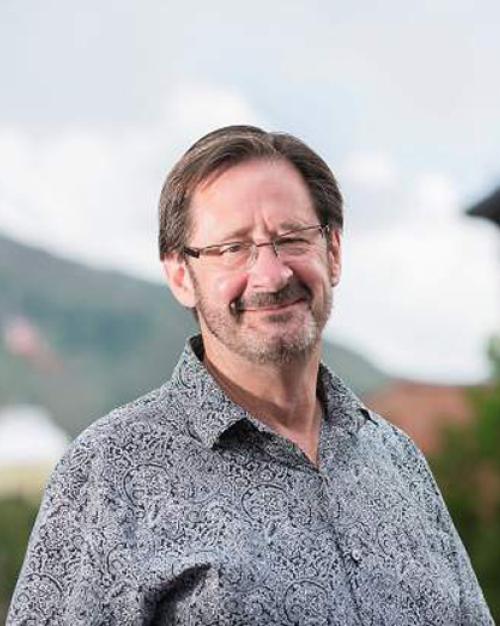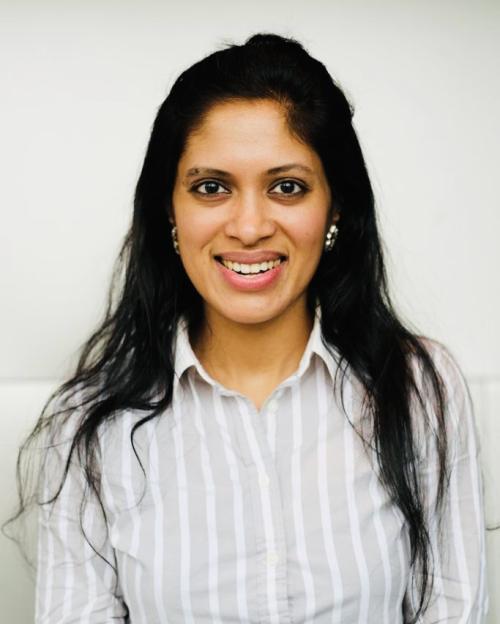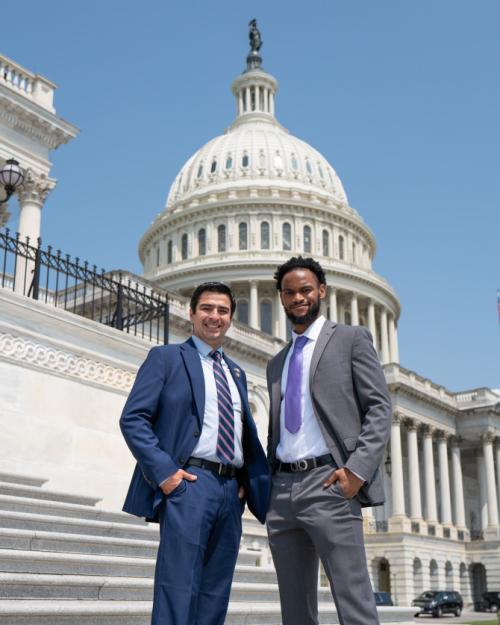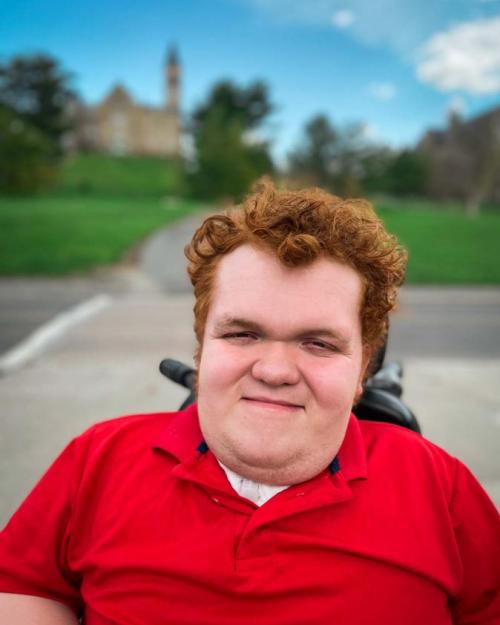Conan Gillis
Mathematics
Honeoye Falls, N.Y.
What are the most valuable skills you gained from your Arts & Sciences education?
Of course, going to a school of Cornell's caliber means that I've been blessed with an exceptional academic experience, especially within my major. But the professors and lecturers at Cornell, although they are truly some of the best and smartest in the world, are not the only source of knowledge here. During my four years here, I have met people from almost every continent and religion and every walk of life imaginable. At the risk of sounding cliché, every single one of them has taught me something new about the world and the people in it, as well as about myself. Coming from a small town in upstate New York, this experience has made Cornell just as educational, and as enjoyable, as any class or lecture. In short, the greatest skill I've gained at Cornell is being able (and eager) to learn from everyone around me.
What is your main extracurricular activity and why is it important to you?
My primary involvement at Cornell has been in disability advocacy, specifically as a member (and, later, president) of the Cornell Union for Disability Awareness. As a person with a disability myself, I am all too aware of the educational disparities that we face throughout our lives, even from primary school. CUDA, and Cornell in general, has given me the perfect opportunity to start making a difference, and to make sure that the next generation does not have to face the same struggles that I have.
What Cornell memory do you treasure the most?
My freshman year, during the first week, I decided on a whim to visit the Rare Books and Manuscripts Collection in Kroch Library. While I have enjoyed so, so many aspects of Cornell, this was the first and most powerful instance where I truly felt what a privilege and joy it is to study here. During my visit(s) to the RMC, I have held books and letters written by Isaac Newton, Thomas Jefferson, and Queen Isabella of Spain. I have also looked at century-old photographs of the Moon, and read a book which was photographed and sent on the Voyager Mission. Above all, though, I have gained a new and intimate perspective of history: how much has happened, how far we have yet to go, and the duty of a university like Cornell to expand our understanding of both.
How have your beliefs or perspectives changed since you first arrived at Cornell? What have you discovered about yourself?
Growing up, being in a wheelchair made it rather difficult for me to explore the world outside my house and school. At Cornell, though, the world has been brought to my school. How has this changed my perspective? In short, completely. I had never really met many people from another state before, let alone a different nation or continent. I had also met very few people of different faiths before, nor people whose political beliefs were terribly different from my own. While I have always tried to stay true to who I am, and will always think fondly and thankfully on the lessons I learned back home (which, truly, was a great and inclusive place to grow up), I know that being at Cornell has made me a more accepting and welcoming person, and I am so much better for it.
Who or what influenced your Cornell education the most? How or why?
My fraternity has been the single most influential aspect of my career at Cornell. While, of course, academics and advocacy are the primary reasons for being here, my fraternity is the place I go when I need a break from all that. It is the place where I feel most at home, most able to be myself without any reservation or compromise. I'm not trying to make any sort of defense of Greek Life in general, but that organization, for me, at this time and place of my life, has been the single most inclusive, validating, and positive experience I have ever had, and I am so thankful I found it.
Every year, our faculty nominate graduating Arts & Sciences students to be featured as part of our Extraordinary Journeys series. Read more about the Class of 2021.




